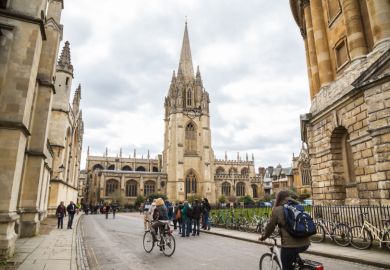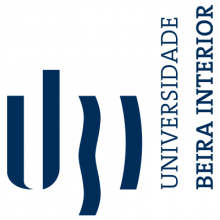
If you’re hoping to study in France, you’ll want to know which universities are the best.
So what are the top French universities and colleges? According to Times Higher Education’s World University Rankings 2021, 41 French institutions are counted among the top universities in the world.
The ranking includes 10 institutions in Paris – the most represented city in France – and other options scattered around the country.
Best universities worldwide
Europe’s best universities
Best universities in the United States
Best universities in the UK
Best universities in Germany
Best universities in Australia
Best universities in Canada
Universities in Paris take the top five spots, but institutions in Lyon, Marseille and Montpellier also feature in the top 10.
The best university in France is Paris Sciences et Lettres – PSL Research University Paris, a collegiate university formed of 25 research and higher education institutions in the Paris area and three national research institutions.
Outside Paris, École Normale Supérieure de Lyon is in equal seventh position.
The student experience in France
The experience of a British student at École Normale Supérieure de Lyon
International perspective: a Vietnamese student in Paris
International perspective: from Delhi to Toulouse
Smaller does not mean there is less opportunity - Ècole Polytechnique
Falling in love with studying in Paris
The positives and negatives of studying at a small university in Paris, France
The appeal of a "village atmosphere" on campus
The cost of studying at a university in France
The 10 most beautiful universities in Europe
International perspective: a Serbian student in France
Top 5 universities in France
1. Paris Sciences et Lettres – PSL Research University Paris
Paris Sciences et Lettres – PSL Research University Paris is made up of 25 higher education institutions and research centres in the Paris area. It was formed in April 2010 by five prominent French institutions: the École Normale Supérieure, the Collège de France, the Paris Observatory, Chimie ParisTech and ESPCI ParisTech.
The institutions under the umbrella of the university are a mixture of older institutions established during the Enlightenment period and new institutions.
The university’s main aim is to establish itself as one of the top research institutions in the world. The institution has also developed links with other top-ranking institutions around the world, including the University of Cambridge, UCL, Peking University and National Taiwan University.
A total of 28 Nobel prizes in physics, chemistry, literature, physiology and medicine, and economics have been awarded to researchers from the university.
2. École Polytechnique
École Polytechnique focuses specifically on science and technology. The motto of the school is “For the Homeland, Science and Glory”.
There are about 3,000 students at the university, which is based in the suburb of Palaiseau, just over 10 miles from the centre of Paris.
Despite the small intake, about 30 per cent of the student body is international, and international students are able to join preparatory programmes.
École Polytechnique offers an interdisciplinary approach, providing a curriculum that combines undergraduate teaching with graduate research across a range of disciplines.
In addition to six science and engineering subjects, undergraduates are also required to take a humanities subject and sports.
Undergraduate admission requires two years of preparation during high school before a week of written exams and an oral examination.
French nationals are obliged to do eight months of military service in their first year, since the university is officially run by the Ministry of Defence.
3. Sorbonne University
Sorbonne University is a public research university in Paris. It was established in 2018 through the merger of Paris-Sorbonne University, Pierre and Marie Curie University and a number of smaller institutions.
The university has three faculties: humanities, science and medicine. Law is taught by Panthéon-Assas University (Paris 2).
Sorbonne has a number of campuses across Paris, as well as a satellite campus in Abu Dhabi.
The university is home to eight notable scientific collections open to researchers. Some of the collections are also open to the public, such as the minerals, palaeontology and zoology collections.
4. University of Paris
The University of Paris is a very young university having only been established in 2019.
It was created through the merger of Paris Diderot University, Paris Descartes University and Institut de Physique du Globe de Paris.
The university provides teaching across the academic spectrum including arts, humanities, languages, social science, economics, science and technology, medicine, dentistry, pharmacy and nursing.
The university spans 14 campuses and research facilities including in the historic Latin Quarter.
5. Paris-Saclay University
Paris-Saclay University is a cluster of 14 institutions of higher education (AgroParisTech, CentraleSupélec, ENS Paris-Saclay, Institut d’Optique Graduate School, Université d’Évry, Université Paris-Sud et Université de Versailles Saint-Quentin-en-Yvelines) and research organisations (CEA, CNRS, Ihes, Inra, Inria, Inserm, Onera). These institutions have brought together their courses, research and facilities for students in southwest Paris.
There are about 275 laboratories within the Paris-Saclay ecosystem, with researchers producing more than 12,000 scientific publications per year. The university produces research in fields including mathematics, laser and particle physics, astrophysics, neuroscience, nanoscience, material sciences, chemistry, plant sciences, engineering, economics and business, law, and political and social sciences.
Paris-Saclay University has produced 10 Fields Medallists and two Nobel laureates.
Best universities in France 2021
Click each institution to view its full World University Rankings 2021 results.
| World University Rank 2021 | France Rank 2021 | University | City/ town |
| 46 | 1 | Paris Sciences et Lettres – PSL Research University Paris | Paris |
| =87 | 2 | École Polytechnique | Paris |
| =87 | 3 | Sorbonne University | Paris |
| =136 | 4 | University of Paris | Paris |
| =178 | 5 | Paris-Saclay University | Paris |
| 201–250 | 6 | Télécom Paris | Paris |
| 251–300 | =7 | École des Ponts ParisTech | Paris |
| 251–300 | =7 | École Normale Supérieure de Lyon | Lyon |
| 301–350 | 9 | Montpellier University | Montpellier |
| 351–400 | =10 | Aix-Marseille University | Marseille |
| 351–400 | =10 | Grenoble Alpes University | Grenoble |
| 351–400 | =10 | IMT Atlantique | Brest |
| 351–400 | =10 | Université de Versailles Saint-Quentin-en-Yvelines | Versailles |
| 401–500 | =14 | University of Bordeaux | Bordeaux |
| 401–500 | =14 | Centrale Nantes | Nantes |
| 401–500 | =14 | Federal University of Toulouse Midi-Pyrénées | Toulouse |
| 401–500 | =14 | L’institut Agro | Paris |
| 501–600 | =18 | CentraleSupélec | Various |
| 501–600 | =18 | Claude Bernard University Lyon 1 | Lyon |
| 501–600 | =18 | University of Côte d’Azur | Nice |
| 501–600 | =18 | Sciences Po | Paris |
| 501–600 | =18 | University of Strasbourg | Strasbourg |
| 501–600 | =18 | Télécom SudParis | Evry |
| 601–800 | =24 | Université Bourgogne Franche-Comté (UBFC) | Besançon |
| 601–800 | =24 | University of Clermont Auvergne | Clermont-Ferrand |
| 601–800 | =24 | École des Mines de Saint-Étienne | Saint-Étienne |
| 601–800 | =24 | École Normale Supérieure Paris-Saclay | Cachan |
| 601–800 | =24 | University of Lille | Lille |
| 601–800 | =24 | University of Lorraine | Nancy |
| 601–800 | =24 | University of Nantes | Nantes |
| 601–800 | =24 | National Institute of Applied Sciences of Lyon (INSA Lyon) | Lyon |
| 601–800 | =24 | Panthéon-Sorbonne University – Paris 1 | Paris |
| 601–800 | =24 | University of Rennes 1 | Rennes |
| 801–1000 | =34 | University of Cergy-Pontoise | Cergy-Pontoise |
| 801–1000 | =34 | École Centrale de Lyon | Lyon |
| 801–1000 | =34 | Lumière University, Lyon 2 | Lyon |
| 801–1000 | =34 | Normandy University | Normandy |
| 801–1000 | =34 | University of Technology of Compiègne | Compiègne |
| 801–1000 | =34 | University of Technology of Troyes | Troyes |
| 801–1000 | =34 | University of Tours | Tours |
| 1001+ | 41 | Paris Nanterre University | Nanterre |
Read more: Best universities in the world











